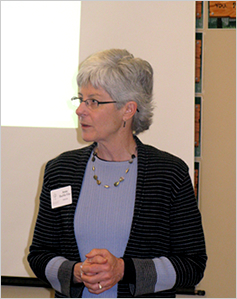
To learn more about Anne's mediation training, read "Advanced mediation training explores non-traditional conflict resolution," featured in the Grand Rapids Legal News.
February 18, 2026 -- Advanced Mediation Training via Zoom (8 hours) with co-trainers Dale Ann Iverson and Bob Wright
This trainng has been pre-approved by SCAO to fulfill the 8-hour advanced mediation training requirements of MCR 2.411 and 3.216.
Topics include: Determining party capacity; mediator competence in managing technology; and how mediators can support lawyers in the mediation process.
Registration will open soon!
--------------------------------------------------------------
Advanced Mediation Training Topics
Confidentiality: Matching Our Walk to Our Talk – Mediators promise that the mediation will be “confidential” but research shows that mediation communications are disclosed in court all the time, often without objection, and sometimes by the mediator. We discuss what mediators say in their retention agreements and opening statements about confidentiality, review court cases where confidentiality was breached, and consider ways to more carefully describe confidentiality to mediation parties.
Apology in Mediation – Apology may be the key to resolving some cases, yet mediators miss the cues, or don’t know how to facilitate the apology that parties need. We review the elements of an effective apology, how mediators can detect whether an apology would be helpful, and how mediators can facilitate the giving and receiving of an effective apology.
Writing Durable Mediation Agreements – Learn from other mediators’ mistakes: We review actual court cases, both written court opinions and brief video clips, where agreements were challenged, to learn how mediators can help parties come up with agreements that won’t invite subsequent court challenges.
Unauthorized Practice of Law – Both attorneys and non-attorneys can get themselves into trouble with UPL when they mediate. The State Bar of Michigan has developed guidelines for mediators, but you may not agree with them. We discuss these, as well as real-life scenarios, then roleplay better responses to those situations.
Safety in Mediation -- Mediators try to ensure that the mediation is both physically and emotionally safe for all participants. We review the screening protocols and identify other steps mediators can take to protect everyone while promoting effective mediations.
“Things Mediators Hate to Hear” –Are there certain things you just hate to hear from parties in mediation? Things like, “I didn’t come prepared to make an offer today,” or, “My client wants me to do all the talking for him.” Instead of getting mad, frustrated, or panicky, learn -- and practice -- some artful responses to those things we hate to hear.
Ethical Dilemmas – Mediators often run into ethical dilemmas—sometimes without even realizing it. We review real-life ethical dilemmas, and consider how best to respond. Compare your gut responses with the Model or the Michigan Mediator Standards of Conduct. (I include a segment on Ethics in virtually every AMT I do.)
Reflective Practice – How can mediators improve their skills when confidentiality prevents them from sharing what happened? Reflective practice is one answer, a personal means of improving mediation skills and insights. Participants take time to think of a recent mediation, then complete a worksheet that takes them through a series of questions designed to help them improve their mediation skills by reflecting deeply on their work.
Working with Emotions in Mediation— Mediations are usually emotional. Mediators and attorneys may want to manage emotions by suppressing them, out of fear that emotions will control the process. This usually backfires. This workshop will demonstrate how to work with emotions in mediation, by viewing video clips and roleplaying ways to incorporate emotions into successful mediations.
10 Ways Mediators Get Sued –We review a law review article by Prof. Michael Moffitt suggesting ways mediators could get sued, and identify ways to minimize the likelihood of mediators making those mistakes.
Agreement-writing Checklist – This ten-point checklist, developed in cooperation with Wayne State Law School Professor Vince Wellman, guides mediators as they assist parties in drafting durable agreements.
Co-Mediation -- Like dancing, co-mediating can be a beautiful thing or stepping on each other's toes. This workshop focuses on how to be, and how to have, a good co-mediator, including scenarios and practice roleplays.
"Mediators Behaving Badly" -- review of recent Michigan cases alleging mediator misbehavior, presented at the ADR Section 2020 Annual Conference.
If you are interested in booking Anne for a training, contact her via e-mail today.

Here's what some attendees from the February 7, 2024, Advanced Mediation Training said:
* Trainers do a great job in providing information of use in all sorts of different types of mediations.
* Content was excellent, presenters knowledgeable.
* Appreciate the presentation materials and the rapport of the presenters.
* Presentations were all relevant and engaging.
* Liked hearing multiple perspectives on common problems.
* Enjoyed sharing experiences with other mediators.
* Breakout groups were great .
* Especially liked the information-sharing -- never know what I'll pick up.
* Good interactions with participants.
